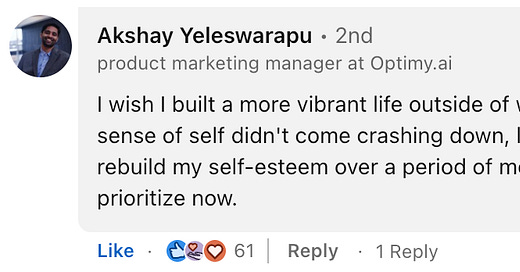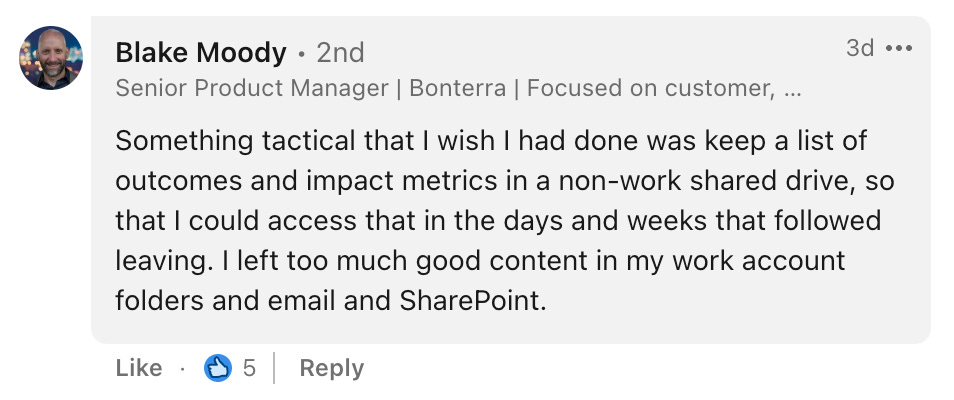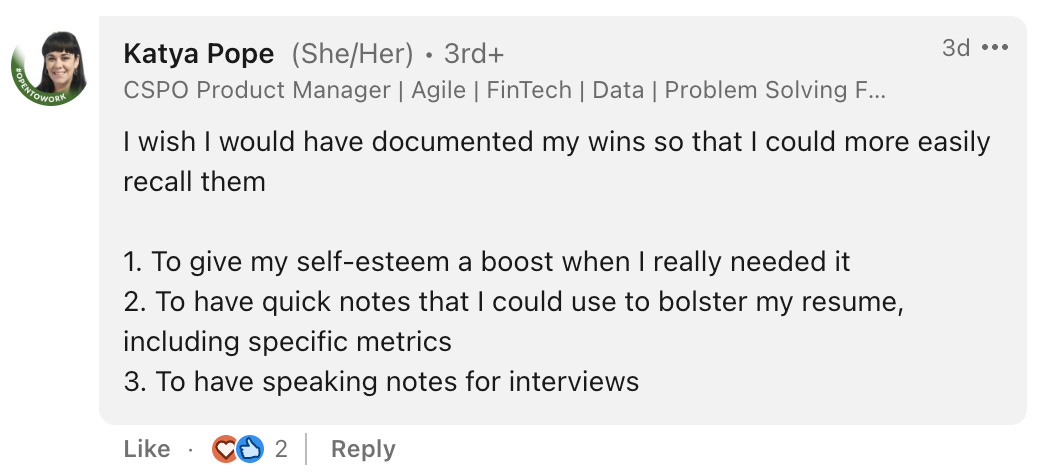How to be prepared for layoffs
What you can do today to avoid getting caught off guard in case layoffs come for you
👋 Hey, I’m Lenny and welcome to a 🔒 subscriber-only edition 🔒 of my weekly newsletter. Each week I tackle reader questions about building product, driving growth, and accelerating your career.
Q: I fear layoffs are coming at my company. What can I be doing to prepare in case I get laid off?
I imagine many people are feeling this way right now. Grateful they still have a job, but scared of what may be coming around the corner.
Not being in this situation myself but with the benefit of a large audience of insightful readers, I went to Twitter and LinkedIn to ask people who’d recently been laid off what they wish they had done to have been better prepared. Here’s the most common advice I heard:
Document your accomplishments
Build (and freshen up) your network
Update your resume
Add some cushion to your savings account
Explore additional sources of income (e.g. a side hustle)
Save your favorite people’s contact info
Don’t let work define you
Below, I’ll dig into these suggestions and share specific things you can do within each. If there’s anything else you’d recommend from your own experience, other readers would really appreciate your advice 👇
Thank you to Matt Quinn for encouraging me to write about this topic, and to everyone who contributes their advice 🙏
1. Save your accomplishments
Surprisingly, the single most common piece of advice was to save details about your accomplishments. Since you’ll suddenly lose access to many of the details, and all of your future interviewers will ask about what you’ve accomplished, this is a high-ROI task.

How to go about doing this: So easy! Go open up a new doc and start dumping a list of times you’ve made an impact at your current job. Include metrics, screenshots, timelines, stories—anything that’ll help you tell the story of your successes.
Do it today, while your memory is fresh and you have access to the details. Don’t overthink it. Here are some templates that may help: guide 1, guide 2, guide 3.
2. Build (and freshen up) your network
You’ve heard this a million times, but it’s still true: it’s not what you know, it’s who you know. Networking sucks, but it sucks more when you don’t have a job.


How to go about doing this:
Who are your 5 most talented friends and former colleagues who work at other interesting companies? Casually ping them to see how things are going.
Start participating in a community (hint: the Friends of Lenny’s Newsletter Slack community is a great place to start—if you’re a paid subscriber and haven’t gotten an invite, reply and let me know)
Go to a local meetup or talk on a subject you’re excited about
Reply to that one recruiter who reached out to you a while back, and ask them about the market these days
3. Update your resume
Resumes still matter, and going through the exercise will help you with these other items. Update your LinkedIn profile while you’re at it.

How to go about doing this:
Capture your accomplishments (see Step 1 above)
Put together a V1 resume. Some templates to get you started: template 1, template 2, template 3, or get a cool custom resume design from Etsy
Ask your successful friends/colleagues for feedback
Share it in an online community that you’re (hopefully) involved in, and ask for feedback
Explore resume review services like this one
4. Add some cushion to your savings account
Imagine no more paychecks starting next month. What are you spending per month, and how much runway do you have?


How to go about doing this:
Cancel unnecessary subscription services and memberships (I use Rocket Money for this)
Track your spending and/or create a budget using apps like Copilot, You Need A Budget, and Simplifi
Put money into a high-yield savings account
Learn about about FIRE (financial independence, retire early)










